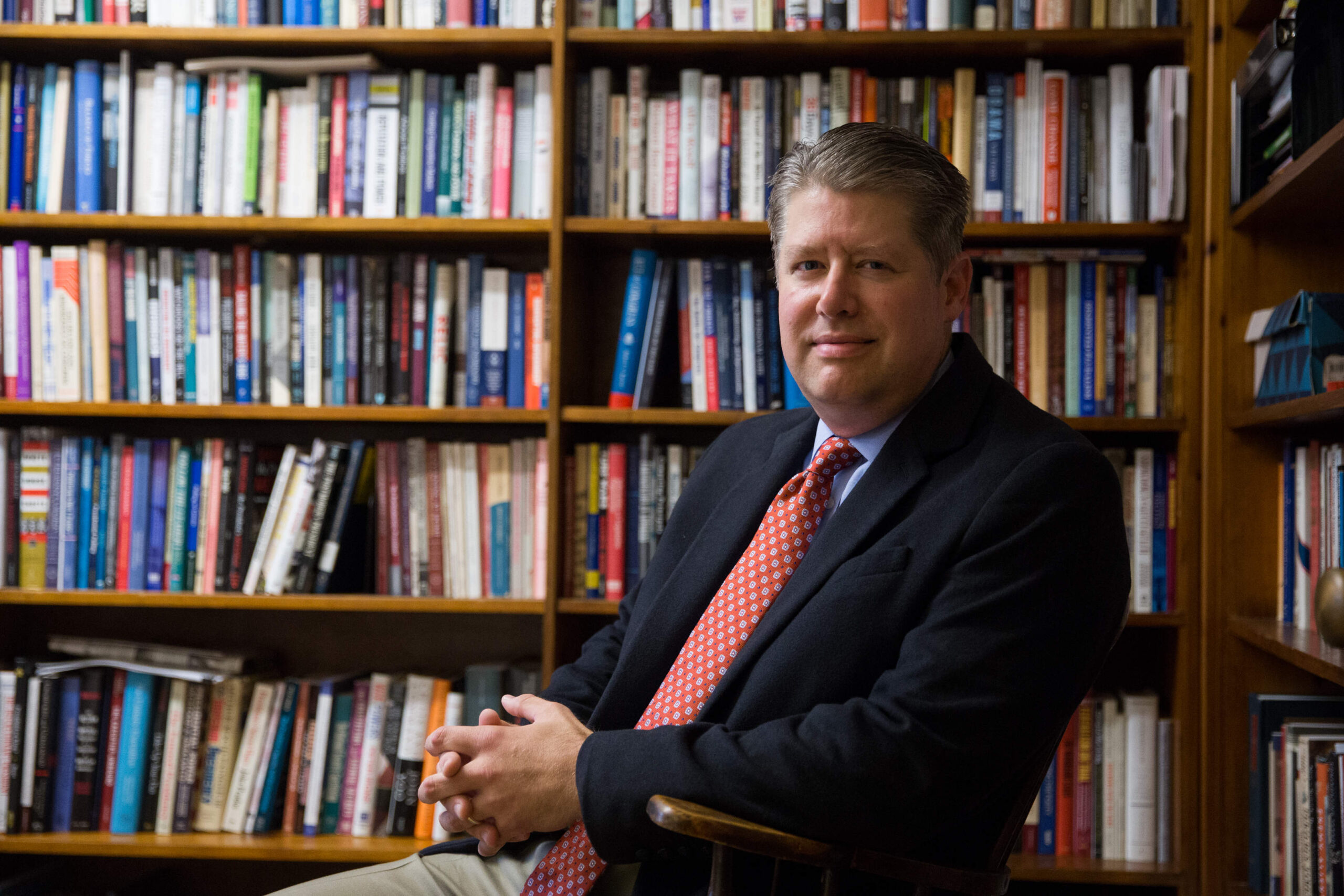Rudalevige popularizes political science in WaPo blog
September 15, 2017
 Ann Basu
Ann BasuThomas Brackett Reed Professor of Government Andrew Rudalevige is determined to use his expertise in American government to better civic engagement both at and outside of Bowdoin.
Rudalevige is an expert on the American presidency for “The Monkey Cage,” a blog founded in November of 2003 by John Sides. The blog has been published by The Washington Post since September 2013 and aims to create a public platform for political scientists to quickly share their research, which might otherwise take up to two years to be peer-reviewed and published, as it relates to current events.
Rudalevige has been a frequent contributor to the blog since 2010. With an average of 355,000 page views per week, “The Monkey Cage” has a much larger readership and circulation than an average political science journal, according to Rudalevige. It strives to provide informed, academic commentary and to be a non-partisan source of political analysis.
“We are political scientists writing about how research applies to events,” Rudavelige said. “[We are] not saying that this event was good or bad, unless that conclusion can be grounded in very serious research.”
Major news outlets have critiqued the Trump administration, questioning the president’s use of executive power and his brash personality. However, Rudalevige is not interested in Trump’s temperament, but instead in the ways in which Trump challenges institutional dynamics of the American presidency.
“I’m more interested in his tweets as an example of efforts to bargain with other parts of the government and the public, rather than [as] an expression of some kind of aspects of his personality or mental state,” Rudalevige said.
In August he was invited to speak on NPR about presidential pardons and executive leaks, following Trump’s controversial pardon of former Phoenix, Ariz., sheriff Joe Arpaio.
“The pardon issue is important because it speaks to the role of law. It speaks to how seriously we take the actions of people on the ground who are enforcing federal law effectively, in the name of the government,” said Rudalevige.
Rudalevige had brought his expertise to other media contexts as well in an effort to make political science accessible to more people. In 2014, former Bowdoin College President Barry Mills approached Rudalevige with concern about the need for civics education and how the College might meet that need. This conversation, along with funding from an anonymous trustee, resulted in the production of an online video series, hosted by Rudalevige, titled “Founding Principles.” The series examines the Constitution and the theory and practice of government. “The Monkey Cage” decided to publish “Founding Principles” in weekly installments over this past summer, and later this month the series is scheduled to be posted on the PBS Learner’s website.
To Rudalevige it is important for people to exit the “information bubbles” that social media such as Facebook and Twitter tend to create and for them to gather enough information to make an informed opinion. Besides “The Monkey Cage,” he recommends several political science blogs: “The Ducks of Minerva,” which specializes in foreign policy; “Mischiefs of Faction,” which focuses on political parties and was recently picked up by Vox and “Lawfare,” written by the legal community in Washington D.C..
“The more that people are informed, the more they participate, the more representative American public policy is going to be of the whole country, and that is a good thing,” Rudalevige said. “[There’s a] video that talks about voting. It says that voting is habit forming, it matters. You should participate; you should be part of a civil conversation about public policy practically every day.”

Comments
Before submitting a comment, please review our comment policy. Some key points from the policy: